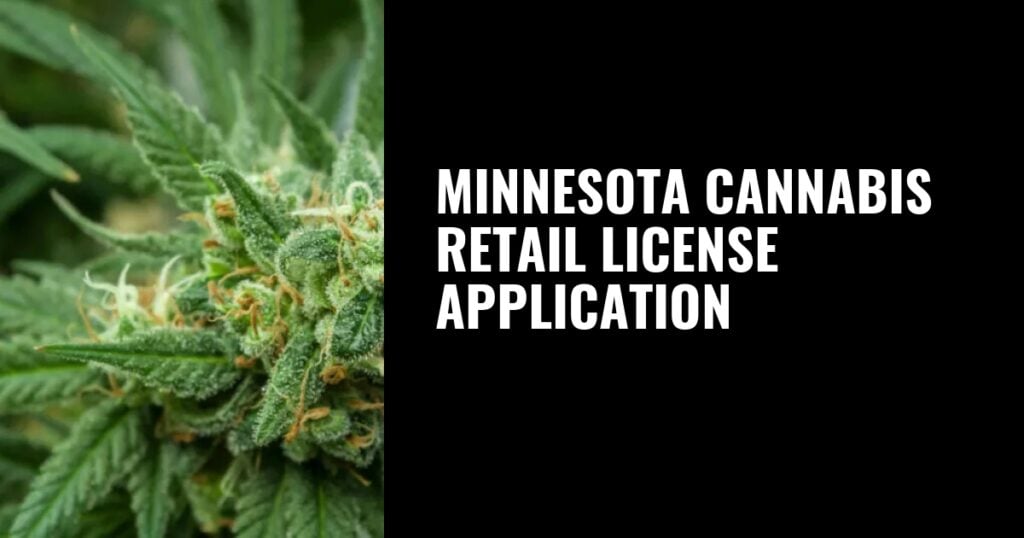TLDR;
Minnesota’s cannabis rules entered final review on March 25, 2025. If you’re already in the retail licensing process, expect licenses to be issued after rule adoption in April. Retail licenses will be distributed through two lotteries – first for social equity applicants, then for general applicants. Prepare to implement compliance requirements quickly once selected.
Minnesota cannabis retail license applications
Introduction
For businesses already in Minnesota’s cannabis retail licensing pipeline, a significant milestone approaches as the Office of Cannabis Management (OCM) enters the final phase of rule adoption. On March 25, 2025, the OCM submitted its proposed rules to an administrative law judge (ALJ) for final approval – the culmination of regulatory development that began with drafts circulated in summer 2024 and refined through public comment.
As applicants who have invested resources into this emerging market, this announcement signals that the waiting period is nearly over. The 14-day ALJ review period means that by mid-April, Minnesota could have finalized rules in place, allowing the OCM to begin issuing cannabis business licenses. This timeline represents a critical juncture for your operational planning and market readiness.
Understanding Business Types and License Categories
Minnesota’s cannabis framework establishes several distinct business categories, each with specific licensing requirements:
1. Retail-Focused Businesses
- Cannabis Retailer: Authorized to sell cannabis to adult consumers. Subject to license caps at state and local levels, making these highly competitive.
- Medical Cannabis Retailer: Operating either as a standalone medical cannabis business or through an endorsement on an adult-use license. Requires additional compliance measures including patient verification.
- Lower-Potency Hemp Retailer: Focused on hemp-derived products with lower THC content.
2. Production-Focused Businesses
- Cannabis Cultivator: Three-tiered structure based on size, with specific canopy limitations.
- Cannabis Manufacturer: Produces cannabis products according to approved categories.
- Cannabis Wholesaler: Distributes products from manufacturers to retailers.
3. Service-Oriented Businesses
- Cannabis Transporter: Provides secure transportation between licensed businesses.
- Cannabis Delivery Service: Delivers products directly to consumers from retail locations.
- Cannabis Testing Facility: Conducts required safety and potency testing.
4. Integrated Operations
- Microbusiness: Allows small-scale cultivation, manufacturing, and retail under one license.
- Mezzobusiness: Permits medium-scale integrated operations.
- Medical Cannabis Combination Business: Integrated operation serving medical patients.
What This Means for Your Minnesota Cannabis Retail License Application
Licensing Timeline
- Administrative rule review (approximately 14 days)
- Publication of final rules in the State Register
- Opening of final application steps for prequalified applicants
- Lottery processes for capped license categories, including retail
Lottery Process for Retail Licenses
Retail license distribution will occur through a structured lottery system:
- First Lottery: Exclusively for qualified social equity applicants
- Second Lottery: For remaining licenses, open to both general applicants and social equity applicants not selected initially
This approach reflects Minnesota’s commitment to social equity while maintaining a fair process for all qualified applicants.
Operational Compliance Requirements
Once selected, retail applicants must swiftly implement several systems:
- Security measures including alarm systems, video surveillance, and access controls
- Age verification procedures for both entry and purchases
- State-integrated point-of-sale systems
- Product testing verification protocols
- Proper storage and handling procedures
- Comprehensive record-keeping systems
Local Considerations
Your relationship with local government remains crucial to licensing success. The final rules confirm that local jurisdictions:
- May establish caps on retail establishments
- Must provide approval before state license issuance
- Can implement additional operational requirements
Engage proactively with your target municipality to understand their specific approval process and any local limitations.
Conclusion
For businesses in Minnesota’s cannabis retail application pipeline, the OCM’s rule submission marks the beginning of the end of the waiting period. The regulatory framework is coming into focus, with final adoption expected in April 2025. Your focus should now shift from application preparation to operational readiness.
The coming weeks will require vigilance and adaptability. Monitor OCM communications closely, prepare to respond quickly to lottery notifications, and ensure your compliance systems are ready to implement. Businesses that efficiently navigate the final application steps and rapidly establish compliant operations will gain crucial early-mover advantages in Minnesota’s emerging cannabis marketplace.
This moment represents both the culmination of your preparatory work and the beginning of concrete operational planning. With the licensing process nearing completion, successful applicants will be those who effectively translate regulatory requirements into functional business systems, positioning themselves for a strong launch when Minnesota’s legal cannabis market officially opens.
